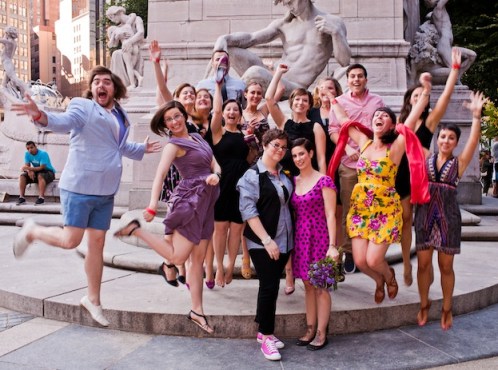It’s evident, if you’re actually part of the queer community instead of just someone reading the headlines, that even the biggest strides towards equality often leave big gaps in our actual experience compared to straight people. For instance, even though DADT has been repealed, that doesn’t mean same-sex partners of service members are eligible for equal benefits. And while the fact that more states have legalized marriage equality is a good thing, the same kind of progress hasn’t been made on the legal aspects of marriage after the wedding. That goes for everything from paying taxes together to raising children together to, sometimes, divorce.

As the Atlantic’s profile of one lesbian couple undergoing a divorce after being legally married in New York explains, while the process of divorcing is painful for any couple, it’s like negotiating a wilderness totally alone for gay couples. In many states, gay divorce isn’t legal and simply; couples who have found themselves having to travel to other states to get married now find themselves “wedlocked,” and unable to legally separate. And it gets even more complicated than that. While processes and legal precedents exist for dissolving all the financial and concrete parts of a heterosexual marriage, most couples have no resources for what to do about 401(k)s or shared possessions. And while some divorces are amicable and equitable, and some couples take care to work together and split everything up as equally as they can, it’s also very possible to use the fact that gay relationships aren’t legally recognized to make a messy and painful process even messier and more painful.
There’s what the law requires and what law and ethics require. Plenty of people take homophobic positions, using the law to their advantage.” She adds, “The kid thing is the heartbreaker. A biological mom saying, thanks for everything, you’re out of luck,” to her former partner, who has no legal rights to the child. Or, with a 401(k), she explains, “there’s a mechanism for dividing that asset upon a heterosexual divorce,” but it does not exist for gay couples even in states where their marriages are recognized.
There are some tools at a same-sex couple’s disposal, but as is the case with many aspects of queer relationships, they’re things we have to take responsibility for putting together ourselves, instead of having institutions already in place. A prenup is a good step for a lot of gay couples who are getting married, and there are tools being created to serve the community where the legal system doesn’t. But for the most part, same-sex couples, even ones who have been legally married, find themselves in a lawless netherworld wherein even and especially in our lowest moments, we have no recourse to a larger system, no guidance about what to do or where to go, and ultimately, no respect for our relationships or their end.

